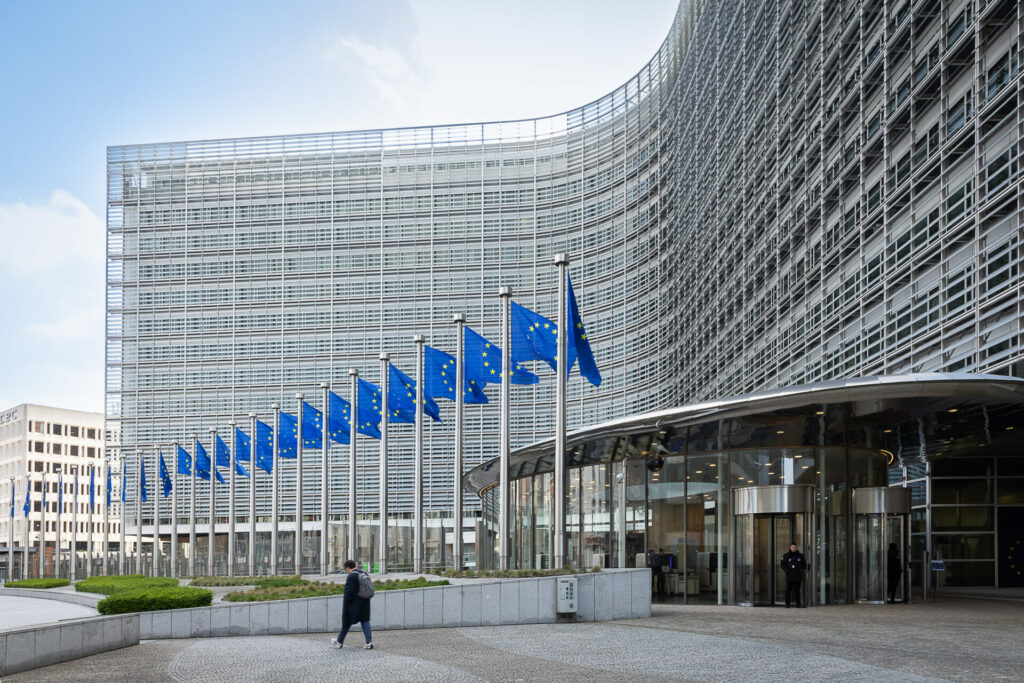The European Commission has proposed a series of new anti-corruption measures aimed at tackling graft both inside and outside the EU, as the bloc attempts to prevent a repeat of the corruption scandal which has engulfed European politics over the past few months.
The proposals include plans to harmonise anti-corruption rules across EU Member States, create "specialised anti-corruption bodies," and increase penalties for those convicted of corruption.
In a press release, the EU Commission noted that even by "conservative estimates" corruption costs the EU economy more than €120 billion every year. It also cited the results of a recent Eurobarometer survey, which found that more than two-thirds of Europeans (68%) believe that corruption is widespread in their country, while less than a third (31%) believe that their government's efforts to tackle corruption are effective.
"Corruption is like a cancer," said the Commission's Vice President for Values and Transparency Věra Jourová. "Like with [any] cancer treatment, we need to improve prevention. We also need to have strong instruments of repression and penalties against corruption, not only at [the] national level, but also at [the] European level."
"Today's package will raise the bar for EU-wide definitions and penalties of corruption crimes and will help authorities to catch and punish the criminals, be it from public or private sector, no matter where they happen," she added.
A spate of scandals
The new measures follow several high-profile scandals at the EU institutions over the past few months, which have placed renewed scrutiny on the EU institutions' lack of transparency on the issue of lobbying and gift-giving.
The so-called "Qatargate" corruption scandal — in which the Qatari and Moroccan Governments are alleged to have made payments to various European officials in exchange for their support for pro-Qatari and pro-Moroccan policies — has already led to charges being brought by the Belgian authorities against several sitting MEPs, including Greek European Parliament Vice-President Eva Kaili and Belgian MEP Marc Tarabella (both S&D).
The scandal subsequently led the European Parliament to pass its own set of measures aimed at tackling graft among its members. These include a mandatory "cooling-off period" for any former MEP who wishes to engage in lobbying practices, as well as the denial of automatic access to the Parliament's premises of former MEPs who do eventually become lobbyists.
Related News
- Why Qatargate is a very Brussels scandal
- New EU scandal prompts watchdog to ask Commission to clarify sponsored trip rules
In addition to this, several EU officials — many of whom are not directly implicated in Qatargate — have recently been reported to have accepted unsanctioned gifts and sponsored trips while in office.
These include Belgian MEP Marie Arena (S&D), who failed to declare that her accommodation and flights to and from Doha on 8 and 9 May last year had been paid for by the Qatari Government, as well as Director-General of the European Commission's Department for Mobility and Transport (DG MOVE) Henrik Hololei, who enjoyed nine free business class flights with Qatar Airways from 2015 to 2021.
Perhaps most notably, European Parliament President Roberta Metsola has also been accused of accepting numerous undeclared gifts — including champagne, paintings, and vases — as well as up to five trips sponsored at least in part by third parties, the most notorious of which was a trip to a French luxury hotel in Beaune last October which was partially funded by a French wine society.

